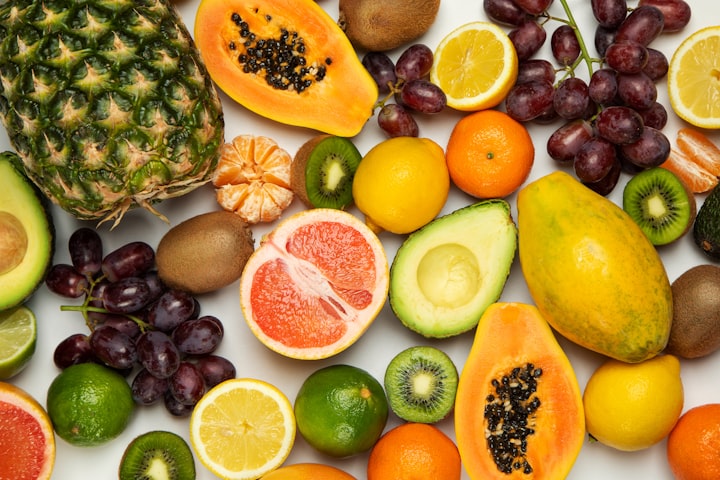The Health Benefits and Risks of an All-Fruit Diet
Fruit

There are many diets out there with varying benefits and risks, but one that’s not often heard of is the all-fruit diet. Yes, you read that right: an all-fruit diet! That’s right – following this diet will mean you eat nothing but fruits (and some vegetables) every day, giving up all meat, dairy products, grains, legumes and anything else that’s not fruit or vegetable-based. Obviously, this is a highly restrictive diet, so it’s important to know the health benefits and risks before deciding if it’s right for you!
Overview
What’s the healthiest way to eat? Lots of fruits and vegetables? Piles of meat? The answer, of course, depends on your dietary preferences and needs. But if you’re thinking about going all-fruit, you should know that the diet isn’t quite as healthy as some might think. Getting adequate protein can be a problem on an all-fruit diet (no meat or dairy here), especially for children who need more protein than adults. Diets high in refined sugar can also cause issues when consumed in large quantities because sugar breaks down into empty calories without any nutritional benefit. Also, don’t forget that eating fruits alone means you won't be getting many valuable vitamins found in vegetables like vitamin C.
Pros
Fruits are rich in nutrients, low in calories, and have several health benefits. A diet consisting entirely of fruits would make sure you’re getting all these great things while eating as few calories as possible. Diets that heavily restrict calories or food groups often result in unintended weight loss; restricting your diet to only fruits would prevent these unintentional losses.
Cons
For example, although fruits have numerous vitamins, minerals, antioxidants and other beneficial nutrients that are essential for good health, some fruits also contain a lot of sugar. This can lead to weight gain if you eat them in excess or regularly. Fruits are also high in calories — so eating lots of fruit could result in a high-calorie intake if you’re not careful. Because fructose is a simple sugar that your body doesn’t metabolize quickly, it leads to rapid increases in blood sugar levels that can spike insulin production as well. Consuming too much fructose could increase your risk of developing type 2 diabetes, gallstones or gout.
Health Benefits
Studies have shown that people who eat a lot of fruit are less likely to develop heart disease, obesity, diabetes, certain cancers and other life-threatening conditions. If you’re going all-fruit, here are a few health benefits to keep in mind: 1) Fruit is high in vitamin C and antioxidants. 2) Some fruits are high in fibre. 3) Fruit can help you maintain a healthy weight by providing natural sugars with limited calories. 4) Fruits may reduce your risk of developing type 2 diabetes.
Heart Disease Risk Reduction
Studies have found that people who regularly eat tropical fruits such as mangos, pineapples, and bananas may be at a reduced risk for heart disease. While scientists aren’t sure what exactly causes these benefits, one hypothesis is that flavonoids present in tropical fruits help to reduce inflammation throughout your body. This in turn may reduce your risk for heart disease.
Blood Sugar Control
An all-fruit diet can help control blood sugar levels because it consists mostly of low glycemic foods. However, some fruits—particularly dried fruits—can raise your blood sugar since they are high in carbohydrates. It’s important to monitor your blood sugar level by testing regularly (like once a week), especially if you have diabetes or another condition that affects your ability to metabolize carbohydrates.
Lower Cholesterol Levels
An all-fruit diet—no meat, dairy, grains or legumes—will lower your cholesterol levels. A large intake of certain fruits can decrease LDL (bad) cholesterol in some people, says a spokesperson for Harvard Medical School. However, fruits and fruit juices are also high in fructose (sometimes called fruit sugar), which can raise bad cholesterol when you consume too much.
Healthy Weight Maintenance and Management
The healthiest diet for weight management is low in processed foods and high in vegetables, fruits, whole grains, beans, legumes and nuts. It’s important to monitor weight regularly—daily or weekly—to ensure that you’re losing weight safely. If you notice a change in your energy levels or sense that your clothes are getting tighter, it may be time to increase your physical activity or cut calories. You can even try tweaking some of your favourite recipes to include a few more fruit options.
Better Digestion with Fiber-Rich Foods
Fibre makes you feel full faster, so you end up eating less overall. You also aid your digestion by adding bulk to food as it passes through your system. Fibre has other health benefits as well—it may help lower cholesterol levels and reduce blood pressure while reducing risks for obesity, diabetes, heart disease, diverticular disease (also known as diverticulitis), and colon cancer.
About the Creator
Healthy Lifestyle the story
I am content writer for articles. I have also provided need articles everywhere. I like articles writer for time to time services provided also customer.






Comments
There are no comments for this story
Be the first to respond and start the conversation.